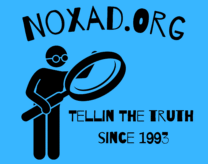Let us say that there is a new technology developed that could allow parties to transact a property deal. The parties get together and finish the details regarding special conditions timing and financing. How will these parties know they can trust each other? They would have to verify their arrangement – government registration, teams that are legal, banks and so on. This brings them back to square one regarding using the technology to save costs.
At the next phase, supply their input while the trade is being made in real time and the parties are invited to join the real estate agreement. This reduces the role of the middleman significantly. If the deal is transparent, the middleman can even be eliminated in some cases. The attorneys are there to avoid miscommunication and lawsuits. These risks are greatly reduced if the terms are disclosed upfront. If the financing arrangements are secured upfront, it’ll be understood that the deal will be compensated for and the parties will honor their payments. This brings us. How will the deal be compensated for, if the conditions of the deal and the arrangements are completed? The unit of measure is a currency issued by a central bank, which means dealing with the banks. Should this occur, the banks wouldn’t allow these deals to be completed on their end without some due diligence, and this would imply costs and delays. Is the technology in generating efficiency up to that helpful? It isn’t likely.
[AdsenseImage]
What’s the solution? Create a currency that’s not just as transparent as the deal itself, but is part of the deal’s conditions. If this money is synonymous with currencies issued by central banks, the only requirement remaining is to convert the electronic money into a well-known currency such as the Canadian dollar or the U.S. dollar that could be done at any time.
The technology being alluded to in the illustration is the blockchain technology. Trade is the economy’s backbone. A key reason is for commerce. Trade constitutes a large percentage of production activity and taxes for regions. Any savings would be very significant. For instance, look at the notion of free trade. Before the trade, countries would export and import with other nations, but they had a tax policy that would tax imports to restrict the effect that foreign goods had in the country that is local. After the trade, these taxes were removed, and a lot of goods were produced. Even a small change in trade rules had a large influence on the world’s trade. The world trade can be broken down into more specific areas like import/export, real estate, shipping and infrastructure and it is more obvious how the blockchain is if it can save even a small percentage of prices in these areas.
As an Amazon Associate we earn from qualifying purchases through some links in our articles.

